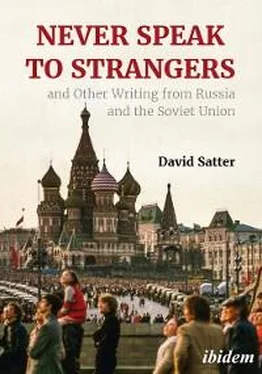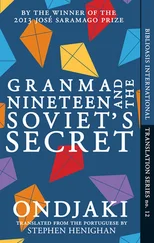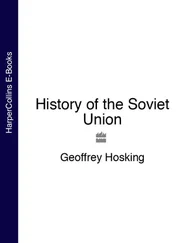Mr. Shevarnadze’s activities after taking office had the potential to evoke considerable resentment on the part of ordinary Georgians tempted to view him as Moscow’s agent assigned to bring the republic in line, Mr. Shevarnadze’s personal qualities, however, unusually in the case of a Soviet leader, have won him widespread respect.
Mr. Shevarnadze has established a reputation of integrity and unlike the secretive Communist Party leaders in Moscow, is willing to appear at the centre of events. Last year he single-handedly quelled a soccer disturbance during a game between Tbilisi and Voroshilovgrad by appearing alone before the crowd and promising to review the film of a disputed play.
Even Mr. Shevarnadze, however, has not been able to extinguish the Georgians’ enterprising spirit, or the resentment against Soviet control. Jobs as taxi drivers and store managers, and places at university, are no longer for sale, but a visitor cannot fail to notice that blue jeans—Soviet black market item number one—are more common in Tbilisi than elsewhere in the Soviet Union. In the central market, amid the piles of grapes, peaches, melons and pears, caviar is said to be still available for 100 roubles a kilo to those who know whom to ask and how.
Financial Times, Thursday, October 5, 1978
Armenia
Angry Nationalist Struggle
Against Soviet Power
On Saturday afternoon, January 8, 1977, a sudden explosion ripped through a carriage of the Moscow metro as it approached the Pervomaiskaya station. The carriage, filled with passengers including many children, was destroyed.
Official reports minimised the casualties, but a man who took part in the rescue work said that he saw at least 30 dead on the station platform. Scores more people were terribly injured and many died later in hospital. It was the worst act of terrorism in modern Soviet history.
In the months after the explosion, the KGB interrogated dissidents, and rumours swept Moscow that the blast was the work of Zionists. There were many, however, who believed that the trail might ultimately lead not to traditional dissenters but to hot, dusty Yerevan where the historically ill-fated Armenians have shown signs of restiveness under Soviet rule.
Yerevan is a city of lush parks, stolid, rose-coloured apartment blocks built of volcanic rock and columned Government buildings on broad squares. The whites and greys of one-storey houses line the sides of arid hills where vines coil around iron frames on the pavement, creating canopies.
In March this year, two Armenians, Mesrup Saratikyan, and his brother were seized in Yerevan and taken to Moscow, bringing to five the number of Armenians from Yerevan arrested in connection with the metro explosion.
The other three suspects were detained in Moscow and Yerevan in November, 1977. They included Yakov Stepanian, a former political prisoner, and a second unidentified man. They were reportedly arrested after planting a bomb at the busy Kursk station in Moscow which serves trains to the Caucasus. The third man was Stepan Zatikian, who once served a labour camp sentence for anti-Soviet agitation.
On June 7 this year, the Soviet news agency Tass said in a terse dispatch about the metro explosion, that “the criminals have been found by the state security committee organs” and that the men had “admitted their involvement.”
In Yerevan, the news of the arrests had leaked out much earlier through relatives of the accused and dissidents who had been questioned about them. The fact that anti-regime Armenians were apparently involved in the metro bombing had a chilling effect on organised Armenian dissent, which has been supressed in repeated waves of arrests since the early 1960s.
The atmosphere in Armenia is more relaxed than in Moscow. There are attractive cafes and the Soviet Union’s only gallery of modern art. Old men play chess in the park and young people gather on summer nights around the fountain in Lenin Square, where Western rock music is broadcast over a loudspeaker.
Despite this, there has been an active dissident movement in the area since at least 1963 and many more people have apparently been arrested in Armenia than in neighbouring Georgia, where nationalism is also a basic issue. Armenian nationalism has a more emotional edge because of the memory of the 1915–18 massacres at the hands of the Turks.
Many Armenians, particularly members of the older generation, give the Russians credit for saving the Armenians from annihilation. “If it hadn’t been for the Russians,” one taxi driver told me, “The Turks would have murdered every one of us.” Others, however, express regret that the Armenians survived the Turkish massacres only to be delivered into the hands of the Stalinists. “The nationalists feel that Soviet power interferes with the ability of Armenians to act for themselves,” one woman said.
The monument to the 1.5m victims of the 1915–18 massacres in Yerevan is a tall obelisk rising starkly to a needle point and, nearby there is a circular mausoleum of 12 inclining pillars around an eternal flame. Oddly, the monument was not built until 1965, after decades when no memorial was allowed. Even today, there is little mention of the Turkish massacres in Armenian schools or in the Press.
Armenian nationalism, which draws some of its force from a sense of historical victimisation, first surfaced in 1963 when more than 200 people demonstrated peacefully outside Communist Party headquarters. They were asking for increased protection for the Armenian language. Then in 1965 a group called “free Armenia” tried to set up a newspaper but those involved were arrested and their press destroyed.
By 1968, a number of nationalist groups had formed, the most important of which was the National Unification Party I (NOP), which succeeded in publishing Armenia’s first genuine underground newspaper, “Paros,” which is Armenian for “beacon.”
NOP’s goal was independence and the unification of the Armenian lands, including Turkish Armenia and Karabach Nakhichevan, a part of Soviet Azerbaijan. Two issues of “Paros” appeared with a circulation of 3,000 each before NOP was suppressed and its press destroyed.
Among the first NOP members to be arrested and subsequently convicted of anti-Soviet agitation were Shagin Arutunyan, later to become a founding member of the Armenian Helsinki Agreement monitoring group, Heikaz Khachatarian, an Armenian artist, and Stepan Zatikian, arrested in Yerevan in November 1977 in connection with the Moscow metro explosion.
In 1976, Mr. Arutunyan helped found the Armenian Helsinki group, which hoped to operate openly. The group collected information about deaths in prisons, interference with contacts with Armenians abroad and persons denied permission to emigrate.
Virtually none of this information sent to Moscow ever reached its destination.
Mr. Arutunyan was beaten by KGB and militia men on the morning of December 22, 1977, and then charged with hooliganism and sentenced to three years in a labour camp at a trial from which his wife was barred. Eduard Artunyan, another Helsinki member and a scientist, was put in a mental hospital and Robert Nazarian, a third Helsinki group member, was also arrested on December 22 and is awaiting trial on charges of anti-Soviet agitation. The charge, carries a maximum penalty of seven years imprisonment and five years exile.
Shortly before Shagin Arutunyan was arrested last winter, he was called to KGB headquarters and questioned about Stepan Zatikian, whom he had not seen for many years.
Friends of Mr. Arutunyan recalled that he and Mr. Zatikian had quarrelled angrily in the Mordovia labour camp where both were serving their terms for anti-Soviet agitation. Mr. Arutunyan said that the way to achieve Armenian independence was to work peacefully for the establishment of human rights in the Soviet Union. Mr. Zatikian, however, ridiculed peaceful attempts to establish legal rights and argued for the kind of methods which were finally used in the bombing of the Moscow metro.
Читать дальше












